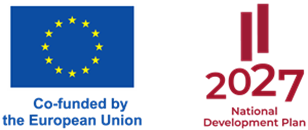Academic knowledge in a commercial solution: the Waterson Technologies story

Attēls: freepik.com
Originating out of Riga Technical University, start-up Waterson Technologies is an example of how academic research can turn into a commercial product with international potential. By making use of state support tools, including innovation vouchers, the company has developed a unique solution that could significantly improve water quality monitoring around the world.
Traditional methods for assessing the biological quality of potable water, for example, sampling and laboratory analysis, are time-consuming, costly, and labour-intensive. Lab testing can take up to several days, thus delaying the identification of pollution. The solution developed by Waterson Technologies offers an alternative: an AI-powered technology that analyses data provided by water supply system sensors in real-time and assesses pollution risks thus making the whole process significantly more efficient.

Dāvids Štēbelis, co-founder of the company, says that their road to development has not been an easy one. “After years of research, we are still only on the way to industrialising the technology. Studies and tests in a laboratory are one thing, but adapting the technology to real life needs is an entirely different challenge, and actually the most difficult one of all,” he says. When the team started to bring the technology outside the lab at the beginning of last year, they found that the AI training methods they had selected initially were not compatible with the real-life environment. “We basically had to start over from scratch,” Mr Štēbelis explains. Now, the company has reached the point where they are ready to begin testing their technology in the field. Moreover, the company has two international customers who are already waiting to conclude a contract and begin trials.
Innovation vouchers have played an important role in the evolution of the company, as they were used for developing algorithms, digitalising water quality data, and creating a database. “The vouchers provided crucial support allowing us to move forward and gradually deal with the complex issues of development,” Mr Štēbelis emphasises. Research and product development in this sophisticated area require extensive financial investment, while securing investors is difficult: a commercially viable result is never guaranteed in research and investors see that as a huge risk. Due to the fact that the innovation vouchers have set limits on the funding made available, the company divided its product development process into several phases to be able to use several vouchers for different steps.
The solution developed by Waterson Technologies has a broad potential of applicability. In future, it could become an invaluable tool not only for water supply companies, but also food and beverage manufacturers, in agriculture and various other production sectors.
This article has been produced with financial support from the European Regional Development Fund.
